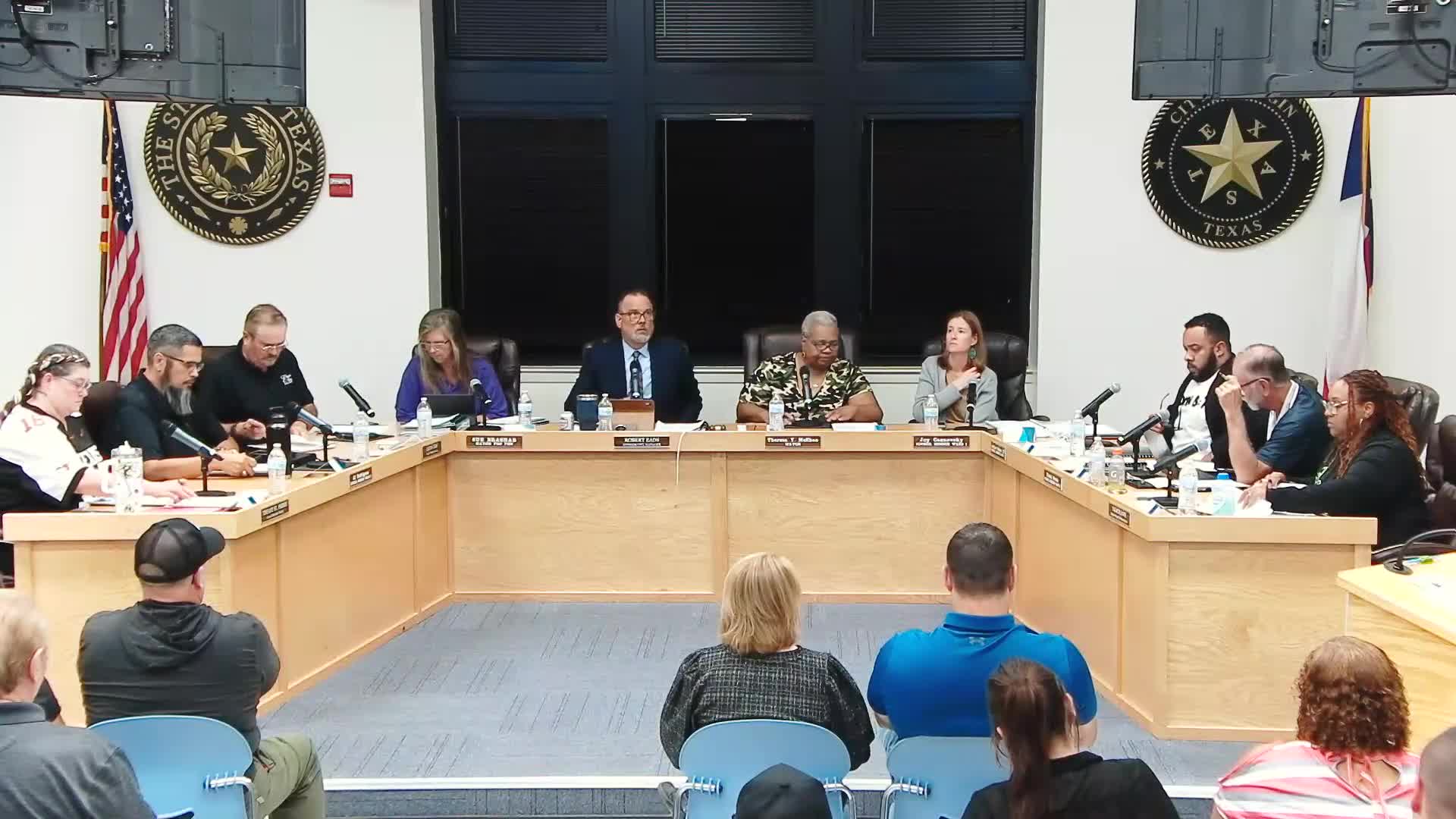Elgin council hears audit findings showing repeated internal-control gaps; staff outline plan for monthly reports and reconciliations
Get AI-powered insights, summaries, and transcripts
Subscribe
Summary
Interim City Manager Robert Eads told the Elgin City Council on Tuesday that recent audits covering 10/01/2022 through 09/30/2024 show repeated weaknesses in internal controls, pooled-cash accounting and bank reconciliations driven largely by turnover in the finance office.
Interim City Manager Robert Eads told the Elgin City Council on Tuesday that recent audits covering 10/01/2022through 09/30/2024 show repeated findings for internal controls, pooled-cash accounting, bank reconciliations, investment reporting and compensated absences.
"Numbers won't lie, and that's what we're gonna have to give you," Eads said, urging the council to focus on correcting the bookkeeping and staffing problems flagged in the audits.
Why it matters: Council members were shown that several audit findings have carried forward from the 2023 audit into the 2024 audit, and staff and the city's consultant said the primary root cause is personnel instability in the finance office. City staff say that without a stable, qualified finance director and sufficient accounting staff, pooled-cash accounting and timely reconciliations become difficult to maintain and audit-ready financial statements are delayed.
What the audit shows: Laurie (Lori) Langford of Gradient Solutions Corporation, engaged in January to assist the city, pointed to a line in the 2023/24 audit (page 30) that shows a deficit in the capital projects column. "A deficit does not mean missing money," Langford said, explaining that the deficit means "there was not enough revenue in that one year to cover the expenses that went out the door" and that transfers from the general and construction funds were not recorded to move money into the capital projects fund.
Langford summarized the spending items appearing in that capital column, reading items listed in the audit such as work on Elgin County Line Road, Roy Rivers Phase 3, the police station, park restroom work and playground equipment. She estimated the items listed in the audit amount to more than $13,000,000 in 2024 spending for projects tied to that fund.
Staffing and recruitment: Eads and Langford repeatedly said the city has not had a degreed, experienced accountant on staff since February 2024 and that a sustained absence of qualified personnel is the largest driver of recurring audit findings. The recruitment process for a finance director was paused to refresh the posting after limited applicant response; staff said recruiting is more difficult because of local market and cost-of-living pressures in the Austin metro.
Steps and timeline: Eads outlined steps the city will take for fiscal year 2026 (10/01/2025through 09/30/2026): deliver monthly and quarterly financial reports to council beginning in January, reconcile bank accounts within 30 days of month end, present revised financial policies for council adoption, and publish quarterly investment reports. Langford and Gradient staff are working with city personnel to document procedures and train current staff to improve reconciliation and reporting while the city searches for a permanent finance director.
On accuracy versus speed: Langford and Eads emphasized accuracy over speed. "I'd rather take the lumps, take it slow because I'd rather do it right than do it fast," Eads said. Langford added she had not found evidence of intentional fraud in the records she reviewed since January but cautioned she had not reviewed multiple prior years in full.
What remains unresolved: Council members pressed for clarity about prior years and whether laws were violated; staff said historical questions beyond the audit periods presented may require additional work, and some council members asked the city to pursue forensic review or legal investigation. No final votes or binding decisions were taken at the session.
Provenance: Excerpts of this article are drawn from the workshop presentation and Q&A beginning with Interim City Manager Robert Eads(00:16:18) and consultant Laurie Langford(00:36:37) through the staff presentation of the FY26 reporting plan (01:25:54).
